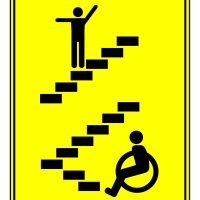Can Employers Prohibit Disabled Employees From Returning To Work Until They Have No Restrictions?

For more than twenty years, our Citrus County, Florida employment discrimination lawyers have fought for the rights of employment discrimination victims. Through their decades of experience representing employment discrimination victims, our Inverness, Florida employment discrimination attorneys have learned employers often do not allow disabled employees who request an accommodation for their disability, such as a leave of absence from work for purposes of medical treatment and recovery, to return to work until they have “no restrictions.” In this article, our Citrus County, Florida employment discrimination lawyers explain how a disability discrimination lawsuit recently settled by the U.S. Equal Employment Opportunity Commission (EEOC) demonstrates that federal employment discrimination law prohibits employers from conditioning a disabled employee’s return to work on a “no restrictions” requirement.
Employment Discrimination Lawsuit
In a press release issued on November 22, 2021, the EEOC announced that it has entered into a Consent Decree resolving a disability discrimination lawsuit against Tenet Healthcare (Tenet) and Pipeline-West Suburban Medical Center, LLC (Pipeline). On June 18, 2020, the EEOC filed the case, U.S. Equal Employment Opportunity Commission v. Tenet Healthcare and Pipeline-West Suburban Medical Center, LLC, Case No. 20-cv-03579, in the U.S. District Court for the Northern District of Illinois after initially attempting to remedy the alleged racial harassment through its statutorily mandated conciliation process. The EEOC filed the disability discrimination lawsuit pursuant to the Americans with Disabilities Act (ADA), as amended by the ADA Amendment Act of 2008, on behalf of a former employee of Tenet, a woman named Quiroz. In the Consent Decree, U.S. District Court Judge Robert M. Dow, Jr. endorsed on November 11, 2021, Tenet and Pipeline agreed to pay $150,000 to settle the disability discrimination lawsuit.
Employee Workplace Rights
The ADA prohibits employers from discriminating against employees on the basis of disability. In order to secure the ADA’s guarantee against disability discrimination, the ADA imposes a reasonable accommodation requirement on employers. Under the ADA, employers are required to provide disabled employees with reasonable accommodations for their disability. Under the ADA, reasonable accommodations included part-time work, job transfer, job restructuring, and a leave of absence from work for medical treatment and recovery. When an employer fails to reasonably accommodate a disabled employee’s disability, the employer has discriminated against the employee in violation of the ADA.
The EEOC claims that Tenet violated the ADA when it failed to provide Quiroz with a reasonable accommodation for her disability, failed to permit her to return to work because of her disability, and discharged her because of her disability. The EEOC further claims that Pipeline is liable for Tenet’s unlawful disability discrimination as a successor in interest to Tenet.
Employee Claims Unlawful Termination
In July 2008, Quiroz began working at Tenet as a radiology technician. Since July 2015, according to the EEOC, Quiroz was a disabled individual within the meaning of the ADA because on a health condition involving her skin. In July 2015, Quiroz began a leave of absence related to her disability. In January 2016, Quiroz informed Tenet that she was ready to return to work and provided Tenet with a doctor’s note stating that she needed a part-time schedule as an accommodation for her disability. The EEOC claims that Tenet could have provided Quiroz with an accommodation without undue hardship. With the requested accommodation, the EEOC maintains, Quiroz would have been able to perform the essential functions of her radiology technician position. Tenet, however, did not allow Quiroz to return to her position with a reasonable accommodation in January 2016. Instead of allowing her to return to work, Tenet required Quiroz to take unpaid leave.
In March 2016, Quiroz was cleared to work without a reasonable accommodation requirement beginning in April 2016. Quiroz informed Tenet that she could return to her position without a reasonable accommodation. Tenet, however, did not permit Quiroz to return to work. Instead of allowing Quiroz to return to work even though she did not need a reasonable accommodation for her disability, Tenet required Quiroz to remain unpaid leave until she could return to work without any restrictions.
Lawyers For Discrimination Victims
The EEOC is the administrative agency of the federal government responsible for administering, interpreting, and enforcing federal employment laws prohibiting employment discrimination, harassment, and retaliation. In order to protect and vindicate employee rights under federal employment discrimination law, the EEOC brings lawsuits in federal court on behalf of employment discrimination victims, including disability discrimination victims.
In a press release issued by the EEOC on November 22, 2021 regarding the case, the Director of the EEOC’s Chicago District Office, Julianne Bowman, noted that the “employee in this case was told that she could only return to work once she had no restrictions.” However, “under the law,” Ms. Bowman explained, “if an employee is able to do the essential functions of her job and accommodating the restrictions would not be an undue hardship, an employer simply cannot insist on ‘no restrictions’ or ‘fully healed’ as conditions for allowing someone to earn a living.”
Discrimination Lawyers In Inverness, FL
Based in Ocala, Florida and representing workers throughout Central Florida, our employment discrimination attorneys in Citrus County, Florida have litigated employment discrimination cases in Florida courts for more than twenty years. If you have experienced discrimination in the workplace or have questions about whether you have been discriminated against in violation of federal employment discrimination law, please contact our office for a free consultation with our employment discrimination lawyers in Inverness, Florida. Our employees’ rights law firm takes employment discrimination cases on a contingency fee basis. This means that there are no attorney’s fees incurred unless there is a recovery and our attorney’s fees come solely from the monetary award that you recover.


 Close Menu
Close Menu